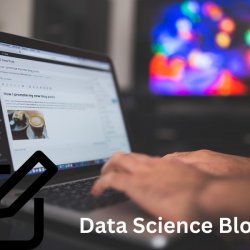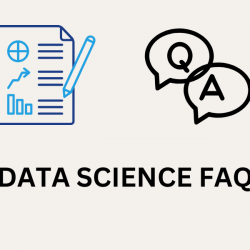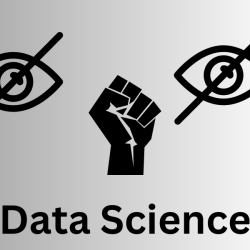Data science job roles


Types of Data Science Positions
Data science has evolved over the past decade and is rapidly gaining traction in the world of technology. As a result, data scientists are increasingly sought out in the job market. With so many positions available, it can be difficult to know which one best fits your skill set. Here is an overview of some of the different types of data science jobs available:
Machine Learning: A machine learning specialist is someone who focuses on designing algorithms that allow computers to learn from data input they process. This type of position requires strong skills in mathematics, statistics and programming as well as creativity. The role involves understanding how to develop algorithms that solve problems, recognizing patterns and making decisions without human intervention.
Data Visualization: Data visualization experts specialize in creating visual representations of data such as charts and graphs for easy interpretation by humans. This position requires a solid understanding of analytical software like Tableau or R and proficiency with coding languages such as Python or JavaScript to create interactive graphics.
Business Analysis: Business analysis positions involve analyzing large amounts of information from different sources to draw insights that help support business decisions. They require technical knowledge as well as expertise in accounting, economics and organizational dynamics to evaluate financial statements, assess risk management strategies and understand customer trends.
Data Mining: Data mining specialists are responsible for extracting meaningful data from large datasets using software tools such as SQL queries or NoSQL databases to uncover patterns and trends within the data. This type of job typically requires advanced programming skills, database experience and knowledge of machine learning techniques.
Statistics & Mathematics: A statistics & mathematics expert helps interpret quantitative data by applying mathematical principles to solve complex problems related to business analytics or scientific research. Future of Data Science Jobs in India
Duties and Responsibilities of a Data Scientist
Data wrangling involves manipulating and cleaning raw datasets in order to make it more usable for processing. As a data scientist, you will need to be able to organize the data into logical structures in order to analyze it effectively. This includes dealing with missing values, outlier removal, normalization, etc.
Analyzing data is a core part of any data scientist’s role. Here, you will explore datasets by conducting statistical tests, creating visualizations such as graphs and maps, and performing other forms of analysis such as A/B testing.
Building models is essential when working with large datasets. Here you will work on developing algorithms to identify patterns or trends within the dataset that may not be visible otherwise. You will also use supervised learning techniques such as regression analysis or clustering algorithms in order to more accurately predict outcomes from the data given.
Communicating insights is another key part of being a successful data scientist – once you have identified patterns or trends within your dataset you need to be able to explain them in an understandable manner so that decision makers can act upon them accordingly. This requires being able to interpret complex datasets and present findings clearly.
Reporting results is an important part of any project as it ensures transparency around decisions made based on the analysis conducted by the team. Reporting should include detailed documentation around methodology used for analysis and any findings identified during the process that can be used in future decisions or research by other members of the team.
Required Skills for Data Science Roles
Data science roles are some of the most sought after positions in the tech world. In order to be successful in a data science role, you need to have a wide range of skills. This includes analytical skills, programming and coding skills, math and statistics knowledge, machine learning techniques, database management systems, data visualization tools, cloud platforms experience, and business acumen.
Analytical skills are necessary for any data scientist role. This means being able to interpret complex datasets and create insights from them. A data scientist should also have strong problem solving abilities which can help when dealing with problems related to analytics.
Programming and coding skills are essential for working in a data science role. The most popular coding languages used for data science include Python, R, SQL and Java. These languages allow the manipulation of large datasets quickly and efficiently.
Math and statistics knowledge is also important for any data scientist position. A good understanding of linear algebra and calculus is needed in order to create predictive models from datasets. Additionally, an understanding of probability theory can help when making decisions based on statistical analysis. Data Science Course in Jaipur
Machine learning techniques are another skill that is beneficial for a data scientist to know. Machine learning can be used to generate insights from large datasets or build predictive models that enable decision making based on historical or current trends in the market. Further knowledge regarding TensorFlow, deep learning algorithms such as neural networks is also beneficial when it comes to building powerful machine learning models from data sets.
Qualifications to Become a Data Scientist
First and foremost, you’ll need a good education. A bachelor’s degree in computer science or a related field is usually sufficient, though many employers prefer candidates with master’s degrees or even PhDs. You should also have strong technical skills, be comfortable programming in various languages (Python being the most common among data analysts), and have basic understandings of mathematics and statistics.
In addition to your educational qualifications, employers may also expect you to have previous work experience with data analytics or related fields. This will demonstrate that you understand how to apply the theoretical knowledge you acquired at school in a real world setting. You should also consider boosting your problem solving skills. This critical thinking ability is essential for successfully solving complex problems that arise in data analysis projects.
Aside from hard skills like programming languages fluency and mathematical knowledge, soft skills are also important for succeeding in any job role particularly one related to data science. Your communication abilities should be strong; being able to explain complex topics clearly and concisely will go a long way towards making sure everyone involved understands the analysis process thoroughly. Additionally, it’s important that you learn how to work collaboratively with others on projects. teamwork skills are essential in any team environment.
Salaries for Various Data Science Positions
Data Scientist is the most common role within the field of data science. As such, this role typically has a higher average salary than other areas of data science. For example, Data Engineers typically make lower base salaries in comparison due to their slightly less specialized skill set and more technical engineering focus. Other roles like Machine Learning Engineer are comparable to Data Scientist but may include higher bonuses or total compensation packages due to the unique nature of their responsibilities.
Not all job titles within the field of data science are equal when it comes to salary expectations. Different roles require different sets of skills, making them more attractive than other positions in certain circumstances or locations. If you’re looking for a specific position, research salary expectations by job title and area location prior to applying or interviewing for a job so that you have realistic expectations about what your future income could be if you’re hired for that particular role.
The factors that affect salaries for data scientists can vary depending on industry, location, company size and type of position being applied for. Generally speaking, larger companies tend to offer higher pay since they often require more specialized knowledge and skill sets from their employees. Additionally, locations such as Silicon Valley are known to have higher wages compared to other places since they’re hubs of innovation and technology development with high competition among employers. Data Science Course in Gurgaon
Career Paths in the Field of Data Science
Job Roles
There are a variety of job roles in data science, such as Data Engineer, Data Scientist, Data Analyst, or Machine Learning Engineer. Depending on your skillset and area of expertise you may specialize in one or more roles. Each of these positions requires different qualifications and certifications to be successful, as well as technical and soft skills to help ensure success.
Qualifications
To qualify for a career in data science you will need a degree in Computer Science, Mathematics or Statistics, although some employers may also accept other related fields of study such as engineering or physics. In addition to your degree it is important to have a strong understanding of programming languages such as Python and R, as these are often required for many job roles. Other qualifications that are beneficial include knowledge of statistics, mathematics and machine learning algorithms.
Certifications
Although certifications are not essential for a career in data science they can be helpful supplemental learning materials that employers may look for when selecting candidates. Popular certifications include IBM Certified Data Scientist (IBM DS), Microsoft Certified Professional Developer for Data Science (MCPD DS) and SAS Certified Big Data Professional (SAS BDP). Obtaining one of these certifications can demonstrate your commitment to the field and show potential employers that you have kept up to date with the most current industry trends by having additional credentials despite your educational background.
Challenges Faced by a Data Scientist
Data scientists are professionals who analyze data and make insights from it. However, their job is not an easy one. There are a number of challenges that they must face in order to be effective in their roles. Here are some of the common challenges faced by data scientists:
- Data Collection: One of the initial tasks for a data scientist is collecting relevant data for analysis. This involves finding reliable sources, gathering information, and then formatting it into a usable format. It requires skill and accuracy to efficiently collect data that is clear and of high quality.
- Cleaning & Preprocessing: Once you have the right data, you have to do the tedious work of cleaning and preprocessing it before you can use it effectively. This can involve dealing with missing values, fixing outliers, discretizing continuous variables etc., all while ensuring quality control of your dataset before moving on to further analysis. Data Science Course in Indore
- What Data to Choose: Not all datasets or variables are equally useful for certain tasks or insights. You have to make sure to select high quality datasets with the right variables that will be most beneficial for what you’re trying to do or discover from your analysis. Meaningful selection can only come after careful consideration and deep understanding of what results you want from your study and how best you can use the information available at your disposal.
- Exploring & Generating Insights: After collecting and preprocessing the dataset, comes one of the main parts of a data scientist’s job exploration and generating insights from the data to inform decisions or predictions about future outcomes or trends in our world today.
Consider Your Options Carefully Before Pursuing A Job In The Field Of data Science
First and foremost, it’s essential to evaluate job roles carefully before applying. Take some time to read through job descriptions thoroughly and ensure that your abilities match up with the description as outlined. Doing this can help you determine if this is the right career path for you or if there is another area of data science that would be better suited to your skills and experience. Additionally, take some time to review company culture and values, as this can have a direct impact on how successful you are in your role. Data Science Course in Nagpur
When researching industry trends, try to find out what challenges current professionals are facing and how these challenges might shape the future of data science jobs. It’s also important to understand what qualifications you need for certain positions in order to maximize your chances at success when pursuing these roles. Consider all necessary skills such as programming languages, software engineering tools, math/stats proficiency and more before applying for jobs so that you are able to competently display those skills on your resume and during interviews.
Finally, it’s important for potential data scientists to consider both the pros & cons of working in this field before forging ahead with their career goals.






Ingen kommentarer endnu